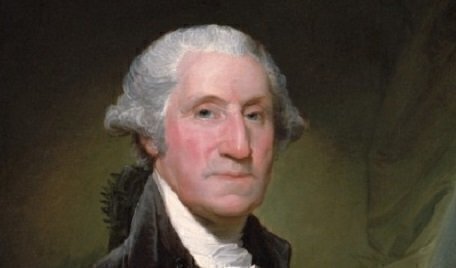This week marks the anniversary of an important early event in our Republic’s history: a potential military uprising defused by George Washington.
 On March 15, 1783, Washington gave one of the most important speeches in his military career. On a grassy knoll in Newburgh, New York, the man who would become the nation’s first President spoke to a corps of soldiers who were on the verge of mutiny. They were tired, they were bloodied, and they were far from home. Most importantly, however, they had not been paid.
On March 15, 1783, Washington gave one of the most important speeches in his military career. On a grassy knoll in Newburgh, New York, the man who would become the nation’s first President spoke to a corps of soldiers who were on the verge of mutiny. They were tired, they were bloodied, and they were far from home. Most importantly, however, they had not been paid.
In the days leading up to General Washington’s speech, a number of petitions, all critical of the Continental Congress, had been circulated amongst the soldiers in Newburgh. The petitions contemplated two possibilities: if the British started turning the tide of the war, it urged the soldiers to abandon the colonies and move out west. Or, if the Americans decisively won the war, it encouraged the soldiers to turn their guns on the newly liberated colonies and overthrow the Continental Congress. Either option would have likely spelled the end of the American experiment in democracy before it even started.
In his history of the Newburgh Conspiracy, Richard Kohn of the University of North Carolina described the soldiers’ frustration: “Whom would peace benefit? Not the officers, who could only look forward to growing‘old in poverty wretchedness and contempt.’ Could they, he asked, ‘consent to wade through the vile mire of dependency, and owe the miserable remnant of that life to charity, which has hitherto been spent in honor?’ If so, they would be pitied, ridiculed, for suffering this last indignity. They had bled too much. They still had their swords.”
When Washington heard of the plot, he was horrified. A mutiny of the scale contemplated in the petitions would destroy the public’s confidence in the military and embarrass the United States on the world stage. It also would vindicate the British King’s skepticism of American self-government by transferring government rule from the British to a military dictator. In his March 12th letter to Alexander Hamilton, Washington wrote, “I was obliged therefore, in order to arrest on the spot, the foot that stood wavering on a tremendous precipice; to prevent the officers from being taken by surprise while the passions were all inflamed, and to rescue them from plunging themselves into a gulf of civil horror from which there might be no receding.”
On March 15, 1783, Washington delivered his Newburgh Address to the senior officers of the Continental Army. The speech contained important themes that would later reemerge in the Washington presidency – national duty, the submission of military to civil authority, and the importance of dispassionate and good faith debate. He reminded them of their duty to the American Republic and of his own personal sacrifices for the nation. “A grateful sense of the confidence you have ever placed in me—a recollection of the cheerful assistance, prompt obedience I have experienced from you, … and the sincere affection I feel for an army I have so long had the honor to command, will oblige me to declare… the great duty I owe my Country, and those powers we are bound to respect.”
At the end of his speech, Washington reached into his pocket and put on a pair of spectacles to read a letter from Congress. "Gentlemen,” he said softly, “You will permit me to put on my spectacles, for I have not only grown gray but almost blind in the service of my country."
According to later accounts, many of the soldiers who heard the speech were moved to tears. As one veteran of the war recalled, "I have ever considered that the United States are indebted for their republican form of government solely to the firm and determined republicanism of George Washington at this time."
The Continental Congress in Philadelphia was shocked when they received news of the averted rebellion. Alexander Hamilton immediately sprang into action, proposing a five-year commutation of the soldiers’ pensions that Congress immediately approved. The Newburgh Conspiracy would not be the last crisis over soldiers’ pay that will shake the nation, however. The Continental Congress’ inability to raise revenue and pay soldiers would later prompt the Pennsylvania Mutiny of 1783 and Shays’ Rebellion of 1786, demonstrating the urgency of the Constitutional Convention of 1787.
Still, the Newburgh Address reminded the soldiers and the nation that liberty does not come cheap – it is never more than one generation away from extinction. It is preserved through the patience, sacrifice, and conscience, of those we trust with power.
Ugonna Eze is a Fellow for Constitutional Studies at the National Constitution Center.







